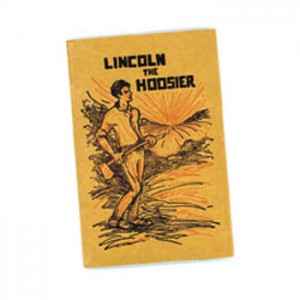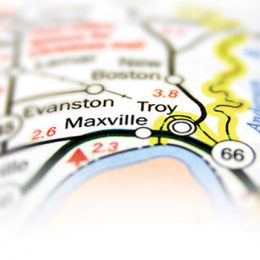 (This commentary originally appeared in the February 2009 issue of Electric Consumer.)
(This commentary originally appeared in the February 2009 issue of Electric Consumer.)
My wife and I came across a nifty booklet called “Lincoln the Hoosier” at an antique shop a few years ago. Its subtitle: “A restatement of some facts that too many folks seem to have forgotten.”
At only 4-by-6-inches and 44 pages, the booklet wields a surprisingly heavy blade ably chopping through decades of historical overgrowth to reveal this honest truth: Abraham Lincoln was a Hoosier. The booklet’s purpose was to let the people of Indiana know “how great is their claim upon the history of Abraham Lincoln.”
Indiana’s claim to Lincoln as at least an equal to Kentucky and Illinois — the places where he was born, and where he lived as an adult and is buried — has been gaining much traction in the past couple of decades. Part of it certainly is for pride, and part of it is for marketing. But this booklet isn’t from some new hyped-up p.r. campaign. It was published in 1927 by The Indiana Lincoln Union.
Indiana’s rightful claim to Lincoln, as the booklet states, is the fact that Lincoln spent the most impressionable years of his life here.
From ages 7 to 21, Lincoln grew up near the Ohio River in Spencer County. Here, he developed his mind and his character: his moral compass, his deep compassion for others and his love of law, learning and literature. Here, he suffered, losing both his mother and his sister. The man that became the revered 16th president was hewn from those days on the harsh Hoosier frontier.
When he left Indiana for Illinois with his father and stepmother in 1830, he was 6-feet-4 and very much his own man. He’d already given stump speeches, written articles and successfully defended himself in a Kentucky court case over his ferrying of folks out to a steamer on the Ohio River without a license. Within two years of leaving Indiana, he was already running for the Illinois statehouse.
A snippet of the booklet says:
“Those who have greatly achieved, are those who have responded to character, to ideals, to truth and to convictions. Character, ideals, and convictions come in youth. The man who does not love truth, honor, virtue, patience, and zeal from early manhood is not guided by them in trying hours of supreme need …. Men may gain knowledge in later life, but a passion for the virtues comes only in the days of youth.
“Character made Lincoln great. His character received its definite bend and form from the influences that surrounded him in the State of Indiana.”
As the nation celebrates his 200th birthday this Feb. 12, we should take pride in our state’s role in the life of the greatest president, one of the greatest leaders to have ever lived. Indeed, Lincoln was — and always will be — a Hoosier.
“Lincoln the Hoosier” is available to read on-line. Here’s a link.
This Internet Archive link is missing pages 8-9. Here’s a link to these two pages that we’ve posted.



